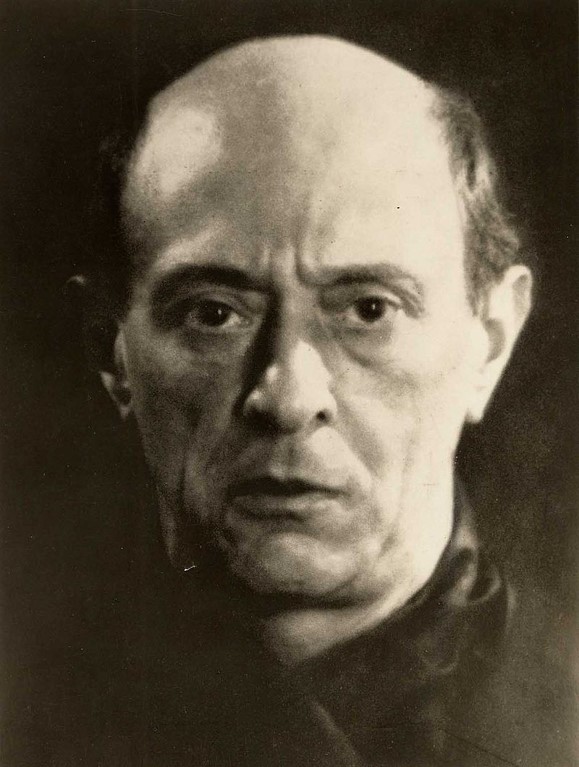

Although he had few formal teachers, Arnold Schönberg imbibed the influence of Vienna's musical traditions from his youth. Born to a Jewish family and trained as a banker, he converted to Protestantism at the age of 24 and became a composer. His early works were in a late Romantic style, and despite the innovations on which he was about to embark, he always saw himself as continuing the traditions of German Classical music.
Soon, Schönberg's music took a radical turn as he abandoned tonality and invented a 12-tone technique called serialism. He considered this technique an inevitable step in the development of music and predicted that it would set the course of composition for the next century. Schoönberg and his students, Anton Webern and Alban Berg, who adopted the serialist technique in their own music, called themselves the Second Viennese School, humbly seeing themselves as successors to the First Viennese School of Haydn, Mozart, and Beethoven.
Horrified by the Nazi's rise to power and their treatment of ethnic minorities in general and Jews in particular, Schönberg reverted to Judaism in 1933 and emmigrated to the United States, eventually settling in Hollywood alongside Igor Stravinsky and George Gershwin.
Peripetie
Pierrot Lunaire: "Nacht"
Pierrot Lunaire: "Der Mondfleck"
Violin Concerto